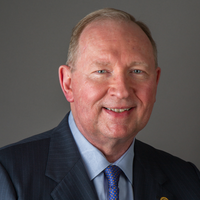Laissez-faire
by John Frost
It seems the country is suffering an identity crisis when it comes to economics. What kind of economic system do we have? What should we have? What are the choices worldwide? What has worked and what has failed? I think I am safe in saying that no one economic system is perfect; no system works for everyone all the time; and, it is not a topic in most elementary and high-schools and one may question what is taught in specialized college courses. This Reflection may be boring for you; it may be a refresher for you; it may be an article you may want to share with your younger, interested folks who are just beginning to think about comparative economic concepts. So the topic is laissez-faire (pronounced like “lazy-far”) economy.
In simple terms laissez-faire is an economic system in which transactions between private parties are free from government intervention such as regulation, privileges, tariffs and subsidies. Some equate the concept of laissez-faire with free-market capitalism. It is not. It is an extremely idealistic view. We live in an American form of capitalism which includes forms of government intervention as mentioned above. However, like a pendulum, it seems in recent years that the pendulum has swung a long way away from laissez-faire idealism. I work in an industry which is highly regulated and I am sure you are similarly affected. Sadly, I remember when our business was not so heavily regulated. It seemed that abuses were more common, more intricate, and more unfortunate for individuals caught up in the schemes, scandals, frauds and deceptions (remembering Bernie Madoff’s Ponzi schemes). Corrective government intervention helped curb the most obnoxious of abuses. Some feel, the regulatory environment has gone too far again, this time the wrong way. Lately, the media has focused on the privileges handed out to CEOs, Boards of Directors and other influential persons. We know about tariffs, and we know all about subsidies (tax breaks, tax abatements, rezoning, and so on). One might observe that under President Trump, regulations have been eased but he has employed tariffs as a bargaining tool when dealing with economic competitors. Taxation is probably the harshest detriment to free market capitalism. It affects almost everyone, even those who do not pay personal income taxes. Everyone who draws a paycheck is subject to FICA and Medicare taxes paid by them and/or their employer. Keep in mind the pendulum is still swinging and, in fact, it may swing in favor of laissez-faire for a while and away for a while. The challenge to us all is to recognize the swings, to adjust, to profit from the swings (if possible) and to prosper accordingly.
Among the writings of Adam Smith, the concepts of laissez-faire was at the core of his economic principles and the school of classical political economists which developed the concepts associated with it over time. There was frequently an appeal to the “natural order” which functioned best without the aid of government. They advised the state to restrict itself to upholding the rights of private property and individual liberty and to removing all artificial barriers to trade, and to abolishing all useless regulations and laws. The “natural order” is conceived as a way to unleash human potential through the restoration of a natural system, a system unhindered by the artificial restrictions of government. The “natural order” postulated that economy is a natural system, and the free market is an organic part of that system. Adam Smith saw laissez-faire as a moral program and the market its instrument to ensure men the rights of natural law. Free markets become a reflection of the natural system of liberty.
Notable economists included variations in their assertions: Thomas Malthus, David Ricardo, Jeremy Bentham, James Mill and others embraced some form of laissez-faire concepts.
We all recall the metaphor of the invisible hand used by Adam Smith in his book The Theory of Moral Sentiments.
As so, we come to the following axioms of a laissez-faire economy:
- The individual is the basic unit of society.
- The individual has a natural right to freedom.
- The physical order of nature is a harmonious and self-regulating system.
- Corporations are creatures of the state and therefore the citizenry must watch them closely due to their propensity to disrupt the “Smithian spontaneous ”
- Markets should be competitive and allowed to function without regulation, government interference and minimal taxes.
Let me conclude this first look at economic systems with this thought: Just what is the proper role of government at all levels (federal, state and local) in our Constitutional Republic under the Rule of Law? In future Reflections, the discussion will look at socialism, communism, theistic societies, dictatorships, pure democracies and other economic systems which may be discovered along the way.

